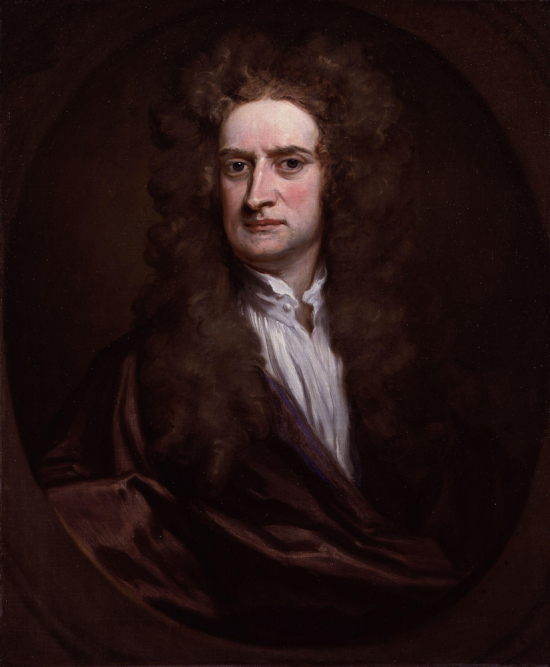Nature and nature’s laws lay hid in night;
God said “Let Newton be” and all was light.
(Alexander Pope)
I wonder whether he would have discovered the Law of Universal Gravitation all the same if he had been standing under a coconut tree instead of an apple tree.
(Achille Campanile, The grapes therapy, 1974)
Very few scientists are universally famous like Isaac Newton, the man who stood “on the shoulders of giants” to see further.
Beyond the well-known story of the apple, Newton’s contributions to classical mechanics (laws of motion and of universal gravitation), differential calculus, astronomy and optics actually mark the beginning of the scientific revolution; his Principia (1687) is considered one of the fundamental texts which have had the greatest influence on the following three centuries.
And yet, according to economist John M. Keynes, “Newton was not the first of the age of reason, he was the last magician”.
In 1936, as much as 329 lots of manuscripts by Isaac Newton were auctioned at Sotheby’s. All of them were unpublished and to that moment they had been judged inappropriate for publication.
Their rediscovery caused a scientific earthquake: surprisingly, more than one third of the so-called “Portsmouth Papers” actually dealt with the study of alchemy.
All of a sudden, the figure of Newton as a forerunner of freethinking got dangerously cracked: was the great scientist really obsessed with the search for the philosopher’s stone? Did he really spend years studying the sacred geometry of Solomon’s Temple? Did he really consider himself an individual chosen by God to decode the prophecies contained in the Bible?
After an accurate study of the manuscripts, the scientific community had to answer yes to all these questions, although reluctantly.
From this perspective, the theory of universal gravitation seemed a direct consequence of the alchemical idea that matter is a spiritual and divine substance. Maybe Newton considered the planets’ gravitational pull as an evidence of the existence of an Anima Mundi, or of God’s will...
All of a sudden the totality of his achievements took on a different meaning, pervaded by mystical purposes and aiming at a recovery of ancient wisdom.
At first people were comprehensibly bewildered, then they started to try and understand more. Like a watermark under the face of the pioneer in science, another figure gradually appeared: the more enigmatic and complex figure of a man intrinsically connected with his time, the Seventeenth century.
There aren’t actually two sides of Newton, the enlightened one and the esoteric one. There is just one side: his fascination with secret doctrines can’t be separated from his rational approach. Even in his occultist writings, he never gave up the rigour and the instruments of mathematics and in this sense his work is part of the transition that over time would deprive alchemy of its mystical-symbolical equipment and transform it into modern chemistry.
The “scandal” of Newton’s esoteric studies therefore doesn’t really undermine the importance of his intuitions. It frames them within a context that has been underestimated by historians for a long time: the context of a century that didn’t differentiate between science, art, superstition and theology, and in which all those who were committed to discover the laws of the universe defined themselves as natural philosophers.
And it reminds us that it is a mistake to presume we can understand the past with the categories of the present.

